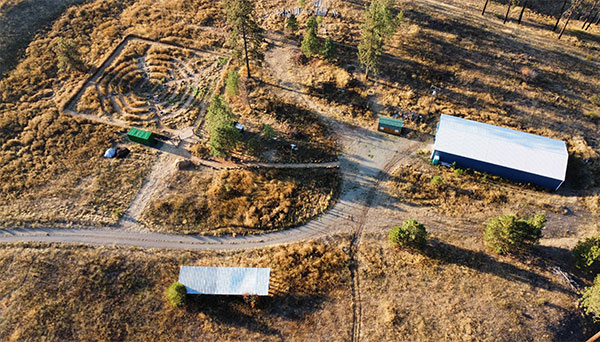Supporting Cultural and Climate Resilience for Eastern Washington Tribes through Cultural Burning and Landscape Restoration
Organization: Conservation Northwest
Mission: Keeping the Northwest Wild since 1989, we protect, connect, and restore wildlands and wildlife from the Washington Coast to the British Columbia Rockies.
Location: Spokane Tribe Reservation and Coville Confederated Tribes Reservation.
Communities directly affected by the project: The Spokane Tribe and Colville Confederated Tribes. Restored ecosystems will also benefit non-human, sensitive wildlife species, including, but not limited to: Northern goshawk, white-headed woodpecker, American marten, Cassin's finch, wolverine, great gray owl, and gray wolf. Additionally, culturally relevant species such as elk, moose, mule deer, eagles, black cottonwood, aspen, wild rose, chokecherry, and elderberry would also benefit.
Country: United States
Other Organizations Involved: Spokane Tribal Network; Colville Confederated Tribes
 @ Melodi Wynne
@ Melodi Wynne
Background
Climate change in the Pacific Northwest, specifically in the form of megafires, threatens lands, livelihoods, and food supply, especially for Indigenous tribes. In previous decades, western wildfires were limited to a few thousand acres a year. Now megafires burn hundreds of thousands of acres. Long ago, tribes learned that fire plays a critical role to transform and shape landscape functionality. Regular burns maintain a needed forest complexity and build resiliency, but larger fires create uniformity that is detrimental to wildlife and leave landscapes more prone to megafire. Reducing megafire risk is only part of the extensive benefits of cultural burns. Many animals in our ecosystem are fire-dependent and unable to adapt to thick, unchanging forests and landscapes. Too little and/or too much fire are problems in landscapes like these. Native plants also benefit from fire, and foraging opportunities become replenished in landscapes that allow traditional foods to flourish. Restoring regular cycles of fire facilitates eco-cultural revitalization, meaning Indigenous culture and food sovereignty are resurrected as ecology is restored.
Goals
This project addresses the impacts of climate change on the Spokane and Colville tribal territories and members, by creating opportunities to steward their traditional lands in culturally and ecologically significant ways while positively impacting community health. A CEC grant will support the launch of a collaborative effort among stakeholders to address environmental and human health vulnerabilities in tribal communities of eastern Washington, and strengthen cultural and climate resilience through Indigenous land stewardship.
Main activities
- Build knowledge and skills among local community members in plant cultivation, resource gathering, and cultural burning to increase tribal capacity to address community health and climate impacts and revitalize Indigenous land stewardship practices.
- Re-establish community knowledge of Indigenous origin stories and participation in the Salish language related to First Foods, such as plant names, animal names, and harvesting actions, to increase community and cultural resilience.
- Engage workshop participants in opportunities to put skills into practice through landscape-scale cultural burning, restoration work, and cultivation of native plants to increase climate resilience of NE Washington tribal lands, restore landscapes damaged by wildfires, and increase capacity to cultivate traditional foods, thereby increasing ecological and cultural resilience while also reducing human health vulnerabilities.
Outcomes
Increased capacity to successfully cultivate traditional foods and native plants, community-led tribal natural resource projects, a greater understanding of the Salish language, and a restored riparian and prairie ecosystem.